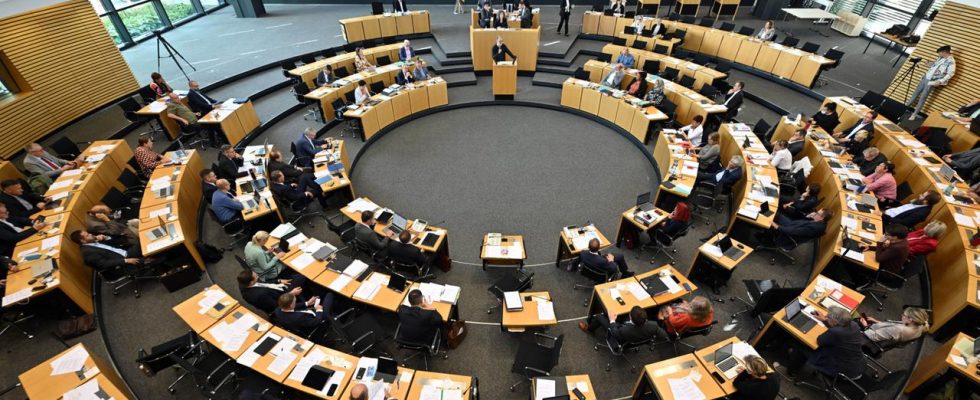background
After the vote to reduce the real estate transfer tax in Thuringia – and the harsh criticism of it – it is said that the red-red-green minority government has already pushed projects through the state parliament in Erfurt with votes from the AfD. Is that correct?
Did the “dam burst” in Thuringia come much earlier than on Thursday, when the CDU, with the votes of the FDP and AfD in Thuringia, achieved a reduction in the property transfer tax from 6.5 to 5 percent? The CDU parliamentary group leader Mario Voigt said in an interview with the daily topics: “I’m a little surprised at the double standards that exist there. The red-red-green minority government passed several resolutions in this parliament only with votes from the AfD and thus received the majority.”
Two processes can be meant
There are two events in the Thuringian state parliament that this could mean. The CDU had already declared in March that the Left, SPD and Greens had only achieved a majority together with the AfD on the law to change Thuringia’s municipal regulations. “Together they changed the local regulations by law – against the recommendation of the leading associations. CDU and FDP not in favor, majority thanks to AfD,” wrote state parliament member Andreas Bühl on Twitter at the time, now X.
The left-wing Prime Minister Bodo Ramelow sharply rejected this. The majority came about because the FDP abstained and several CDU MPs were not present, he wrote on Twitter.
In terms of content, the change in the law was about putting municipalities in a position to decide for themselves again whether non-decision-making committees should be allowed to be public. The minutes of the meeting show that the government factions, the AfD faction and the non-attached MP Ute Bergner voted in favor, the CDU faction voted against and the FDP faction abstained. However, it is not clear from the minutes of the meeting how many MPs were present at the time, as it was not a roll-call vote.
In the Thuringian state parliament, the government made up of the Left, SPD and Greens has a total of 42 seats, the opposition has 48 seats. Four of these seats go to the FDP. If a non-attached party voted for the change, two CDU MPs would have been missing for a majority without the AfD.
Various bills
In the second vote in question, members of the CDU and FDP called for a committee of inquiry into possible misconduct by the state government in the awarding of public offices in April. The Left, SPD and Greens amended the proposal – and voted for the change together with the AfD.
The Green Party member of the state parliament, Madeleine Henfling, wrote today on It is therefore not important whether the AfD parliamentary group voted for it.
Left MP Stefan Dittes also made the calculation: the CDU and FDP could only achieve majorities together with the AfD. The government coalition, on the other hand, is dependent on the CDU and FDP not forming a majority with the AfD.
The calculation of who forms majorities in a federal state with a minority government can be viewed differently. The election of FDP politician Thomas Kemmerich as Prime Minister by the CDU, FDP and AfD factions was also seen as a breach of taboo at the beginning of 2020. Whether the “dam burst” in Thuringia didn’t come much earlier anyway is debatable.

